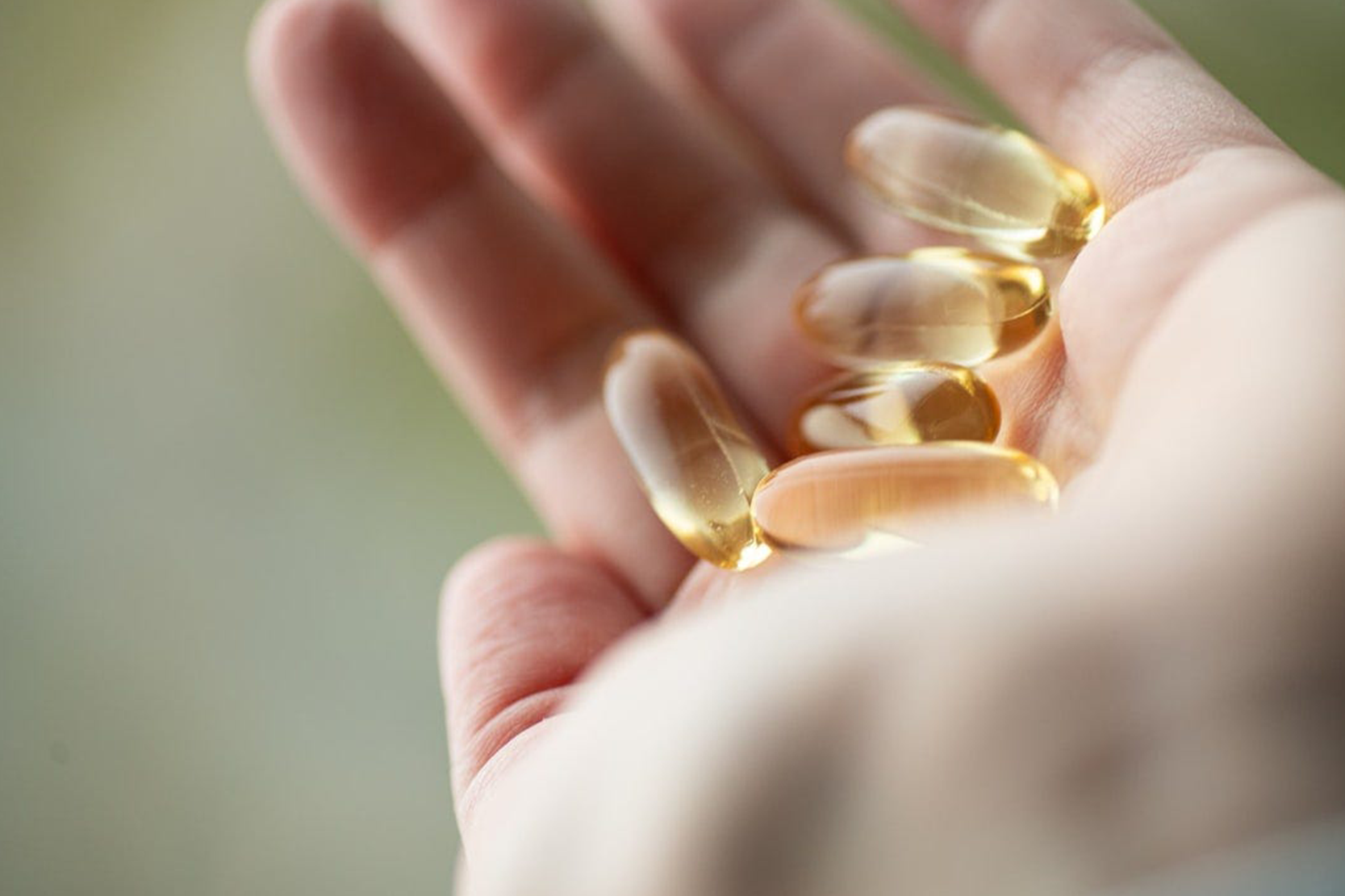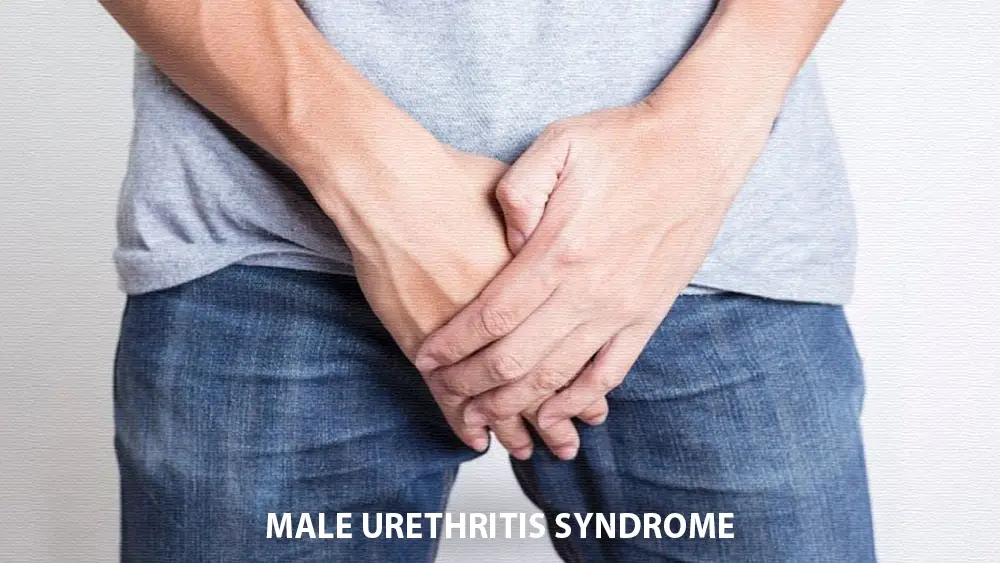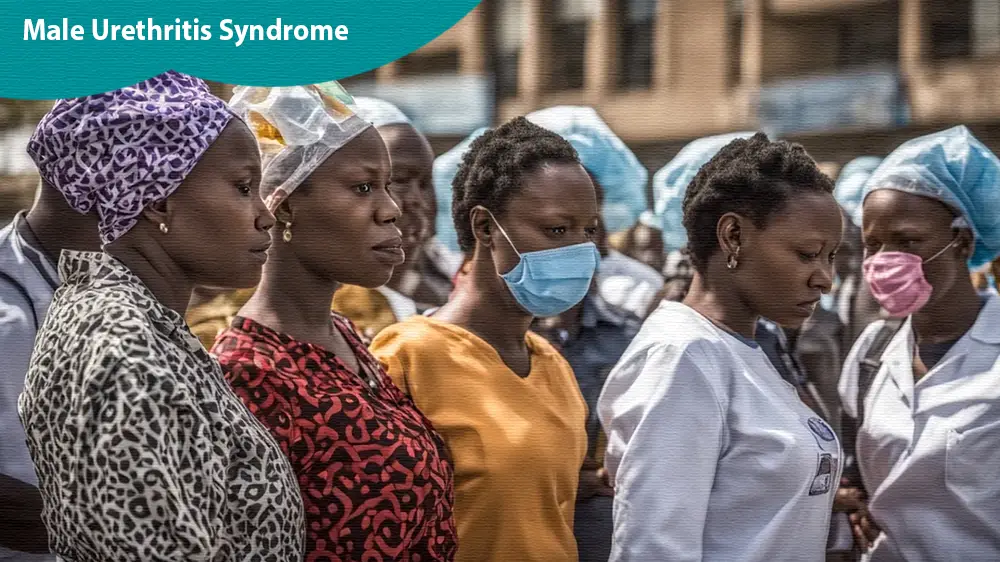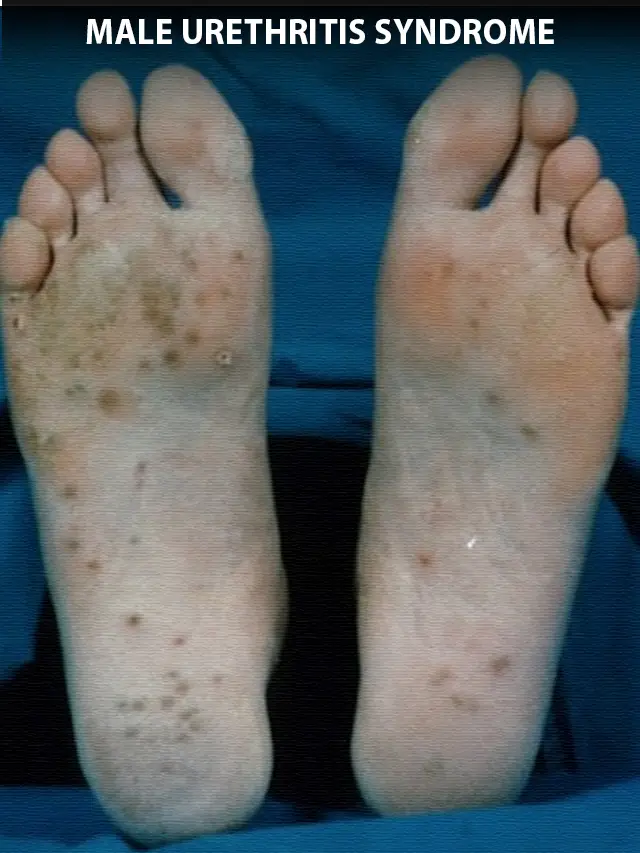
HEALTH NEWS
Male Urethritis Syndrome On The Rise In Africa: Know The Causes And Symptoms
-
Rahul Priydarss
In this article, we discuss addressing the prevalence of male urethritis syndrome in Africa, which requires a multidimensional approach that includes improving access to health services, promoting sexual health education and awareness, addressing socioeconomic disparities, and combating the stigma surrounding STIs.
What Is Male Urethritis Syndrome:
Male urethritis syndrome is a medical condition characterized by inflammation of the urethra in men. The urethra(penis) is the soft tube that carries urine from the bladder. This syndrome can result from a variety of factors, including bacterial or viral infections, sexually transmitted infections (STIs) such as gonorrhea or chlamydia, irritation from chemical substances, or other underlying medical conditions.

Table of Contents
– Urethritis is a lower urinary tract infection that causes inflammation of the urethra, a fibromuscular tube through which urine exits the body in both men and women and through which semen exits the body in men. Urethritis is strongly associated with sexually transmitted infections and is known as gonococcal or nongonococcal. The most common symptom of urethritis is discharge from the urethra. This activity reviews the assessment and management of urethritis and highlights the role of interprofessional team members in collaborating to provide well-coordinated care and enhance outcomes for affected patients.
Causes Of Male Urethritis Syndrome:
It is important to understand these different causes for accurate diagnosis and proper treatment of male urethritis syndrome.
Bacterial Infections:
Neisseria gonorrhoeae: Gonorrhea is a common sexually transmitted infection (STI) caused by the bacterium Neisseria gonorrhoeae. When bacteria infect the urethra during sexual contact it can cause urethritis.
Chlamydia trachomatis: Chlamydia is another bacterial STI that often causes urethritis. chlamydia is spread by having unprotected sex with an infected person or your partner.
Other bacterial pathogens: Apart from gonorrhea and chlamydia, other bacteria such as Mycoplasma genitalium, Ureaplasma urealyticum, and Haemophilus influenzae can also infect the urethra and cause inflammation.
Viral Infections:
Herpes simplex virus (HSV): HSV, especially HSV type 2, can cause genital herpes and lead to urethritis. This virus is highly contagious and can spread through sexual contact.
Human papillomavirus (HPV): Some types of HPV, primarily types 6 and 11, can cause genital warts. Whereas warts are usually not connected. With urethritis, inflammation may occur if warts obstruct the urethral opening or if secondary infections develop.

Sexually Transmitted Infections (STIs):
Syphilis: Although syphilis mainly affects the skin and mucous membranes, if the bacteria enter the urethra it can cause urethritis during the early stages of infection.
Trichomoniasis: Trichomoniasis is caused by the parasite Trichomonas vaginalis and can infect the urethra in men, resulting in urethritis. It is usually spread through sexual activities.
Mycoplasma genitalium: This bacterium is recognized as the cause of non-gonococcal urethritis (NGU) and is often sexually transmitted.
Chemical Irritants:
Personal hygiene products: Some chemicals found in soaps, lotions or perfumes can irritate the delicate tissues of the genital area, causing inflammation of the urethra.
Spermicides or lubricants: Some individuals may experience urethritis as a reaction to chemicals present in spermicides or lubricants used during sexual activity.
Trauma or Injury:
Urinary tract instrumentation: Procedures that involve inserting medical instruments into the urethra, such as catheterization or cystoscopy, can cause irritation or injury to the lining of the urethra.
Physical trauma: Accidental injuries to the genital area, including blunt force trauma or vigorous sexual activity, can cause inflammation of the urethra.
Underlying Medical Conditions:
Urinary tract infection (UTI): Infections of the urinary tract, including the bladder or prostate, can sometimes spread to the urethra, causing urethritis.
Prostatitis: Inflammation of the prostate gland, known as prostatitis, can cause symptoms of urethritis due to its proximity to the urethra.
Reactive arthritis: Some inflammatory conditions, such as reactive arthritis (formerly known as Reiter’s syndrome), can cause urethritis as part of a broader spectrum of symptoms affecting the joints, eyes, and urethra.
- It is important to understand these different causes for accurate diagnosis and proper treatment of male urethritis syndrome.
Symptoms of Male Urethritis Syndrome:
It is important to note that the severity and combination of symptoms may vary among individuals with urethritis. Prompt medical evaluation is important for accurate diagnosis and appropriate management of the condition. Symptoms of male urethritis syndrome can vary in severity and presentation. Here is a description of each symptom:
Pain or Burning Sensation during Urination:
– Individuals may experience an uncomfortable sensation when urinating, often described as a burning or stinging sensation.
– This sensation usually occurs when urine passes through the inflamed urethra, causing a burning sensation and pain.
Abnormal Discharge from the Penis:
– Men suffering from urethritis may notice abnormal discharge from the entrance to the penis.
– Discharge can vary in color and consistency, appearing clear, white, or yellow, and may be thick or watery.
Increased Urinary Urgency:
– There may be a strong urge to urinate even when the bladder is not full.
– Individuals may feel the need to urinate more often than usual, which may disrupt daily activities.
Genital Irritation:
– Redness, swelling, or inflammation around the head of the penis may be caused by urethritis.
– Itching or discomfort in the genital area may also be present, indicating irritation and inflammation.
Hematuria (Blood in Urine):
– Blood in the urine, known as hematuria, may be evident in individuals with urethritis.
– The presence of blood can range from small traces to more significant amounts, indicating possible damage or irritation to the urinary tract.
Hematospermia (Blood in Semen):
– Some men with urethritis may also experience blood in the semen, called hematospermia.
– This symptom can be distressing but is usually benign and resolves with appropriate treatment of the underlying urethritis.
Dysuria (Painful Urination):
– Dysuria refers to pain or discomfort experienced during urination, which often occurs with urethritis.
– The sensation of dysuria can range from mild discomfort to severe pain, depending on the severity of the swelling and the underlying cause.
Lower Abdominal Pain:
– In some cases, individuals may experience discomfort or mild pain in the lower abdomen, especially during urination or ejaculation.
– This pain can radiate from the urethra and is usually associated with the inflammatory process of urethritis.
Difficulty Initiating Urination:
– Urethritis can sometimes cause difficulty initiating urination, especially if there is significant swelling or blockage within the urethra.
– This symptom may appear as hesitation or delay in starting urine flow.
Why The Rise In Male Urethritis Syndrome In Africa?:
– South Africa is facing a growing sexual health crisis as cases of male urethritis syndrome (MUS) have increased by 40%. The Gauteng Health Department reports a significant increase in MUS cases among men seeking medical care in public health facilities from April to December 2023. Common causes include gonorrhea and chlamydia, and high-risk areas include Sandton, Alexandra, and parts of Johannesburg. Public awareness and responsible behavior are vital to combat this silent epidemic.
– A worrying trend has emerged in the central part of South Africa. The Gauteng Health Department has recorded a staggering 40% increase in cases of male urethritis syndrome (MUS) among men seeking medical care in public health facilities from April to December 2023. This is a huge increase, from 12% to almost 15% in 2020. 2023, underscoring the growing sexual health crisis.
– Male urethritis syndrome, characterized by symptoms such as penile discharge and burning sensation during urination, often goes unnoticed due to its subtle manifestation. If left untreated, it can lead to more serious complications, including testicular pain and swelling. The most common causes of MUS in South Africa are gonorrhea and chlamydia, both sexually transmitted infections (STIs).
The rise in male urethritis syndrome in Africa factors:
High Prevalence of Sexually Transmitted Infections (STIs): Africa faces significant challenges in controlling the spread of STIs such as gonorrhea, chlamydia, syphilis, and HIV/AIDS. The prevalence of these infections contributes to the increased incidence of urethritis syndrome in men.
Limited Access to Healthcare Services: Many areas of Africa lack adequate healthcare infrastructure and resources, leading to inadequate access to sexual health services, STI testing, and treatment. This limited access hinders efforts to promptly diagnose and manage urethritis, allowing the condition to progress.
FAQs Male Urethritis Syndrome:
A1: Male urethritis syndrome refers to inflammation of the urethra in males, often caused by bacterial or viral infections, STIs, or chemical irritants. It leads to symptoms such as painful urination and abnormal penile discharge.
A2: Common symptoms of male urethritis syndrome include pain or burning during urination, abnormal discharge from the penis, increased urinary urgency, genital irritation, and occasionally, blood in the urine or semen.
A3: Male urethritis syndrome can be caused by bacterial or viral infections, including STIs like gonorrhea and chlamydia, as well as exposure to chemical irritants. Other factors such as trauma or underlying medical conditions may also contribute.
A4: Diagnosis typically involves a medical history review, physical examination, and laboratory tests such as urine analysis and urethral swab culture. These tests help identify the causative agent and guide treatment.
A5: Treatment often involves antibiotics to target bacterial infections, antiviral medications for viral infections, and symptomatic relief measures such as pain relievers and avoiding irritants. Partner treatment and follow-up testing may also be recommended.

-Please remember, to always consult with healthcare professionals or Doctors for personalised advice related to medical conditions.
Conclusion:
The increase in cases of male urethritis syndrome (MUS) in Africa, particularly evident in South Africa, highlights a growing sexual health crisis that requires urgent attention. Factors such as high prevalence of sexually transmitted infections (STIs), limited access to health services, socioeconomic disparities, and stigma associated with STIs contribute to this condition.




